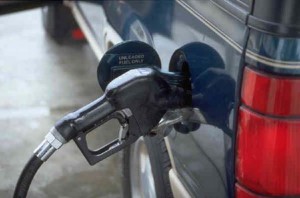Several years after slashing the amount of sulfur content in diesel fuel, the Environmental Protection Agency will take similar steps with gasoline, a move that is expected to yield significant improvements in public health while both boosting vehicle performance and lowering emissions.
Under the new Tier 3 regulation set to go into effect by 2017, refiners will have to slash the amount of sulfur that can be left in gasoline by at least two-thirds. While the new rules are expected to increase the cost of the refining process, regulators believe it will pay off in lower medical bills – while also helping improve vehicle performance at a lower price.
The announcement is the latest step taken by the Obama Administration to improve the quality of fuel, reduce emissions and improve fuel economy. Just last month, the president ordered a sharp increase in fuel economy for the nation’s medium and heavy-duty truck fleets. Reduced-sulfur fuels introduced during Obama’s first term have already yielded sharp reductions in emissions by both diesel trucks and passenger cars by making it possible to use more modern pollution control devices.
It has been decades since the EPA banned refiners from adding lead to their gasoline blends. Sulfur, on the other hand, is naturally found in petroleum prior to the refining process and some is already removed but what’s left has been blamed for a variety of problems. It is linked to smog, and the asthma and other diseases that can lead to. Sulfur dioxide is linked to both acid rain and is considered one of many greenhouse gases. Meanwhile, sulfur itself can clog engines and damage emissions control systems.
(For more on the new truck fuel economy rules, Click Here.)
The EPA estimates that the new rules will lead to an 80% reduction in particulates and other emissions, while improving overall performance in light-duty gas-powered vehicles. There should be a 60% reduction for heavy-duty vehicles.
How much the new regulations will cost is a matter of debate. The American Petroleum Institute, the refinery industry’s lobbying arm, has put the price tag at up to $10 billion in up-front investments, with another $2.4 billion in annual operating costs. The organization claims that would add anywhere from 6 cents to 9 cents a gallon to pump prices.
But the EPA puts the figure at just $1.5 billion, and less than 1 cent per gallon. The additional clean air requirements for automakers would add about $72 per vehicle, according to the agency.
(CNG may not be as environmentally friendly as once thought. Click Here to find out why.)
And it contends any added fuel costs will be more than offset by an estimated $6.7 billion to $19 billion in reduced medical costs – and fewer sick days by workers and students. The EPA also forecasts there will be 2,000 fewer premature deaths annually, as well as 2,200 fewer hospital admissions.
Among the benefits, regulators say, vehicle emissions will be sharply reduced during the first minute or so after a vehicle is turned on. Emissions spike during that period because the catalytic convertor has not yet heated up to the necessary operating temperature to burn off sulfur and other pollutants created by an internal combustion engine.
The new rules cut sulfur levels from 30 parts per million to 10 ppm – which actually just puts the U.S. in line with standards already in place in Europe, Japan – and California which has long had stricter emissions regulations in place than the rest of the country.
While the oil industry had actively lobbied against the new rules, the auto industry has lent the administration its support. And while Republicans originally cited the measure as an example of “overreach” by the Obama White House during the 2012 election, a number of members of the GOP, including Utah’s conservative Gov. Gary R. Herbert, have since come out in favor of the sulfur reduction.
(New lightweight metals research program could yield big improvements in fuel economy. Click Here to learn more.)


What nonsense… Constantly driving the cost up of autos and trucks due to a clueless energy policy by the Obama admin and the EPA.
“…regulators believe it will pay off in lower medical bills.”
When pigs fly. SHOW ME the real world statistics where medical bills are lowered by reduced sulfer in motor fuels. It’s a disgrace the way some in government abuse their power.